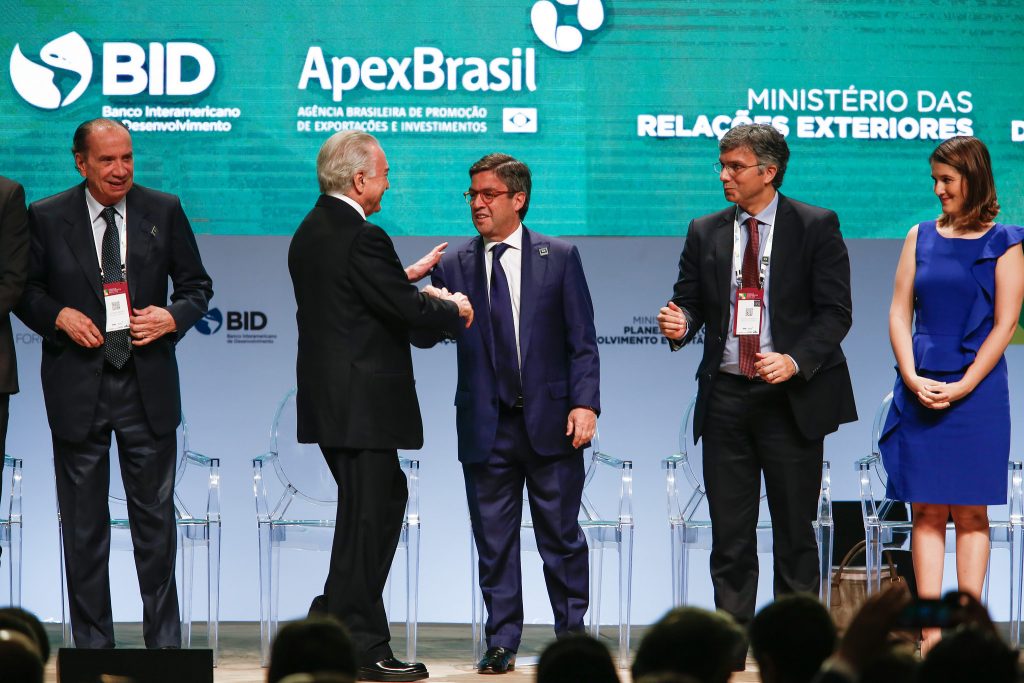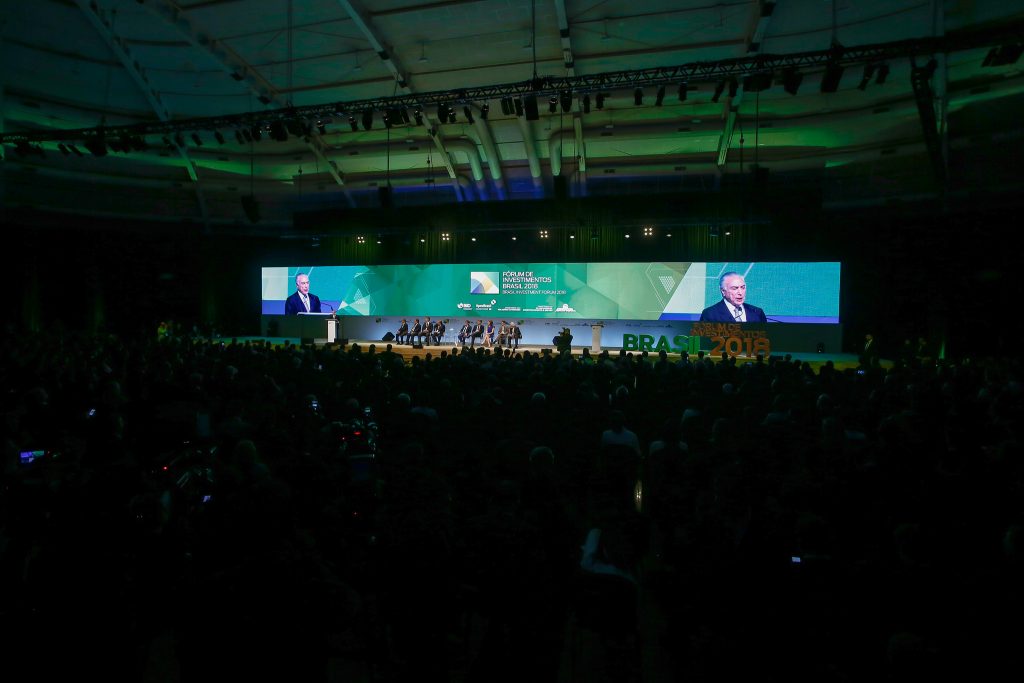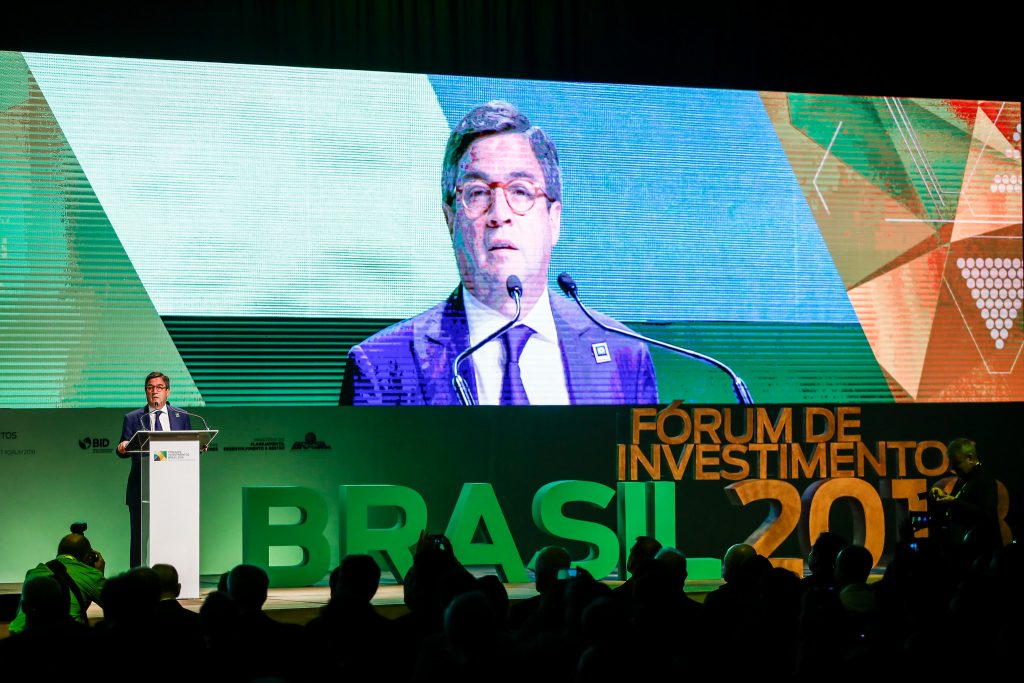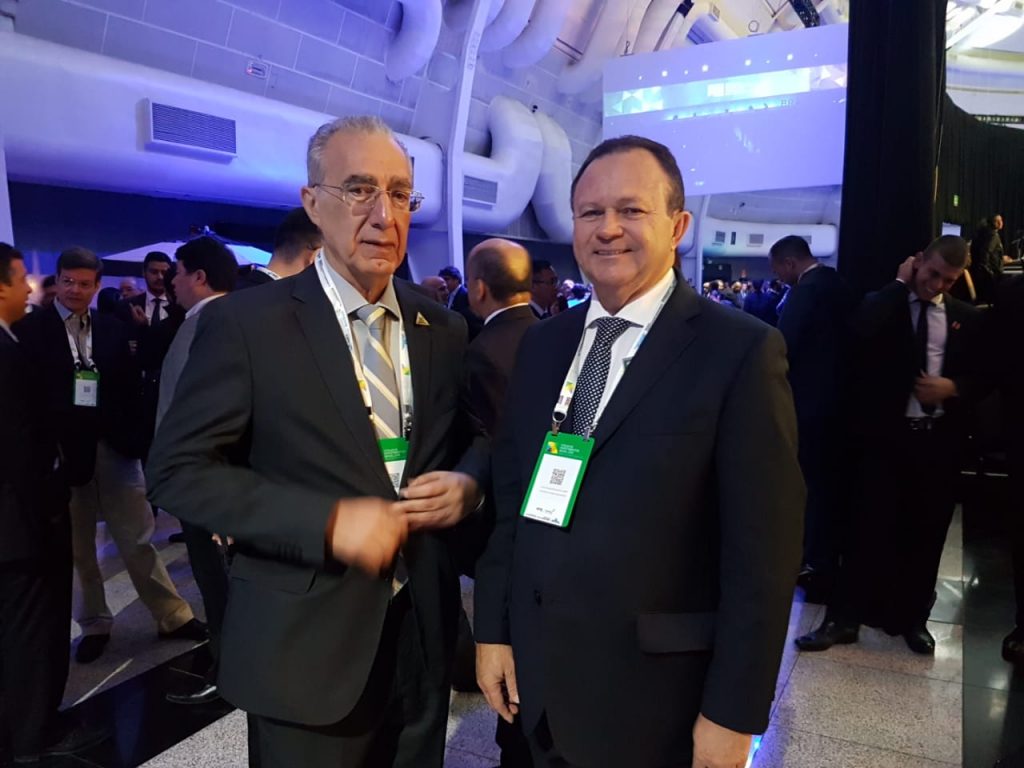São Paulo – President Michel Temer said that the Brazilian economy is being restructured for an internationalization and that measures such as the implementation of a new law for the pre-salt, the increase in concessions and privatizations, the modernization of regulatory frameworks and the removal of red tape are positive aspects to attract foreign investors to Brazil.
The Brazilian president spoke on the opening ceremony of the Brazil Investment Forum 2018, which began this Tuesday (29) morning at the World Trade Center, São Paulo, with the presence of government authorities (picture above) such as the Foreign Minister, Aloysio Nunes, the president of the Inter-American Development Bank (IDB), Luis Alberto Moreno. The event was organized by the Brazilian Trade and Investment Promotion Agency (Apex-Brasil).
Temer emphasized the resume of free trade between Mercosur and other countries and economic blocs, especially the European Union. “We’re seeing an increasing integration of the Brazilian market with global markets; in Mercosur, we revived the original mission for the free market, signing new agreements, and we are making progress with the Pacific Alliance, resuming old negotiations and signing new agreements, with Canada, Singapore, South Korea; we’re also entering the final stages with Mercosur and European Union,” he remarked.
He also said that “Brazil is the non-member of the Organisation for Economic Co-Operation and Development (OECD) that signed on the highest number of the organization’s agreements, signaling our solid commitment with the best public and private management practices.”
He said that “the private sector plays a central development role, and that the companies, large, medium and small are the best generators of wealth and opportunities in the country.”
(Continues after the photo gallery)
In the event
In his speech, IDB’s president said that Brazil is a model for Latin America and that the private sector has a leading role in the country’s economy. “I believe in Brazil’s potential, and not only in the World Cup [laughter], and despite this difficult moment with the truckers’ strike,” said Moreno. Brazil is facing a tense moment due to a truckers’ strike that has halted the supply of fuels and has blocked the country’s highways, hindering exports and the supply of products to the population.
“We, foreigners, see that Brazil as a country with the world’s eighth largest economy, that has resumed growth; with all type of natural resources and the region’s largest middle class; a country that has it all to succeed,” he added. Moreno is Colombian. Only Temer and Moreno spoke in the opening ceremony.
Also attending the forum were the president of the Arab Brazilian Chamber of Commerce, Rubens Hannun, and its CEO, Michel Alaby. Hannun said that events such as this one are very important to reinforce investments from Arab countries in Brazil, and he talked with entrepreneurs, Arab ambassadors and authorities, such as the vice governor of the state of Maranhão, Carlos Brandão.
To Hannun, this is a moment of crisis management and it’s important to ensure to Arabs that Brazil is solid for them to maintain their investments, specially on Brazilian food products. “We have been doing a continuity job on investments because the Arabs have an important capital and Brazil is appealing, so we have an important job of maintaining and expanding these investments long-term, since Brazil has a fantastic potential,” he remarked.
About
The Brazil Investment Forum 2018 aims to highlight investment opportunities in strategic sector of the Brazilian economy, such as infrastructure, agriculture, energy, construction, technology and innovation. The event, which will run until Wednesday (30), includes many panels, with representatives from the private sector and public officials. The first panel discussed the outlooks of the Brazilian economy, with the presence of the minister of Planning, Esteves Colnago, the secretary of economic policy of the Ministry of Finance, Fabio Kanczuk, and executives of large corporations and banks established in Brazil.
Translated by Sérgio Kakitani









